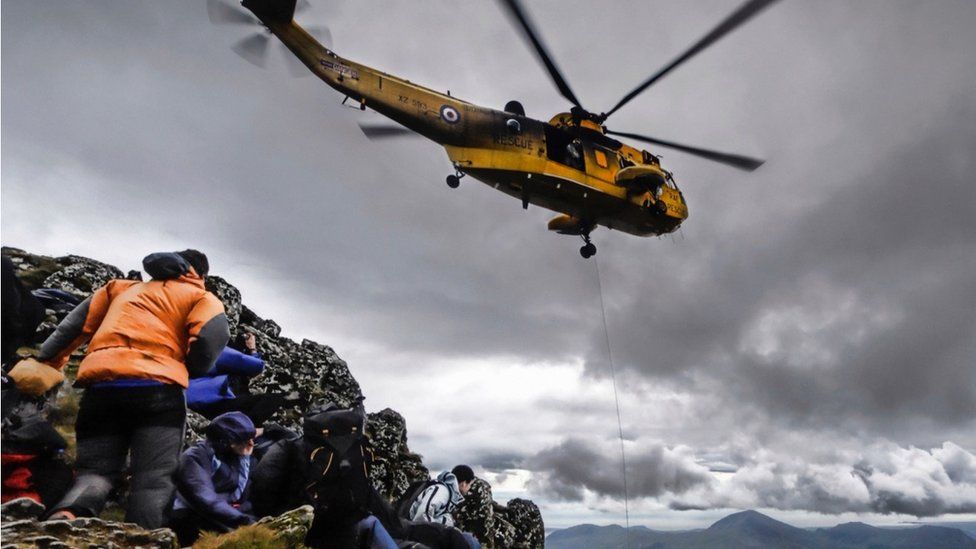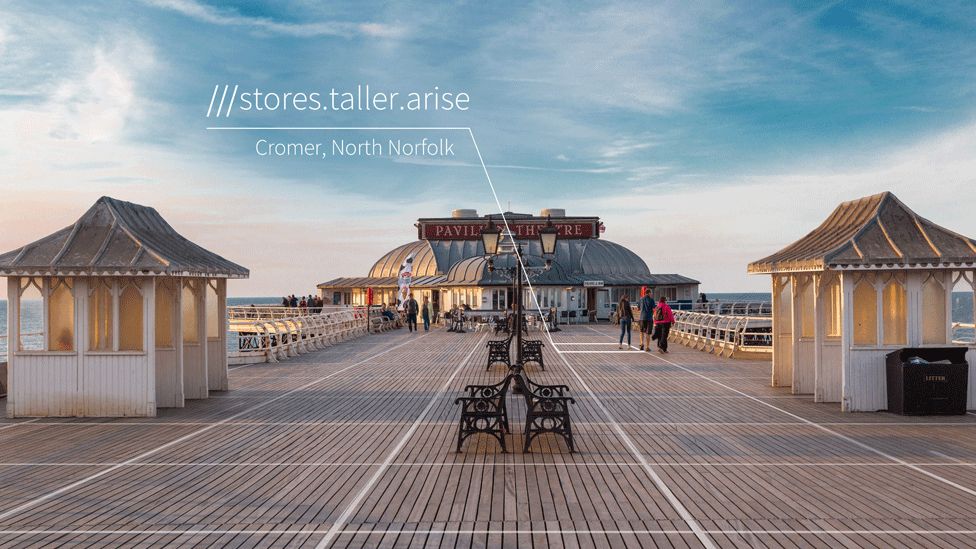Mountain Rescue in England and Wales shows the BBC dozens of wrong addresses it has been given.

image copyrightGetty Images
Mountain rescuers have questioned the accuracy of using a location app, citing dozens of examples where the wrong address was given to their teams.
What3Words (W3W) divides the world into three-by-three metre squares, each with a three-word address. It is free and used by 85% of UK emergency services.
Reasons for the errors were not given, but were likely to be things such as mispronunciation or spelling errors.
W3W said human error was “a possibility with any type of tool”.

image copyrightWhat3words
The mapping system was created by an algorithm which assigned three words to each square in the world.
Mark Lewis, the head of ICT at Mountain Rescue England and Wales (MREW), said that the use of the W3W app had been “testing” for rescue teams.
He gave the BBC a database from the last 12 months which listed 45 locations across England and Wales that rescuers received from lost or injured walkers and climbers, which turned out to be incorrect.
Examples included:
- jump.legend.warblers which was in Vietnam
- duties.factory.person was located in China
- dignitary.fake.view turned out to be in India
- refuse.housework.housebound was in Australia
- middle.plugged.nourished was in the US
- demand.heave.surprise was actually in Canada
- flesh.unzip.whirlwind was in Russia
“It’s a tool, and a tool is better than no tool, but people are being sent to the wrong location,” he told the BBC.
“We are finding there are a lot of spelling issues, which might be from when locations are given to the emergency services. Local accents have also been a problem.”
W3W said that it was difficult to comment without the full details of what went wrong, but told the BBC: “We regularly check in with the emergency services that use the system to receive feedback. The overwhelming response is positive, and, time and time again we have been humbled to see stories where our technology has turned out to be life-saving.
“In terms of misheard or misspelt words, our system is designed to try and minimise this as much as possible.”
It referenced a system called Autosuggest, which it says “actively intercepts possible errors, and highlights them to the user to prompt additional checks”.
But Mr Lewis said rescue teams were often left to work out themselves where an address might be in the local area.
Because the details often come to them via emergency services, rather than directly from the person needing help, it is not always possible to phone them back to confirm addresses.
“That in itself can be frustrating,” said Mr Lewis.
There are alternative systems such as OS Locate, a free app provided by Ordnance Survey, that allows people to locate themselves by GPS latitude and longitude co-ordinates as well as altitude, even without a mobile signal.
Sarloc and Phone Finder are tools that have been developed by mountain rescue team members, and these are used whenever possible to obtain an accurate location.
“While we welcome anything that could contribute to safety, we’re wary of adding to people’s reliance on their mobile phones.” added Mr Lewis.
MREW is keen to encourage anyone planning a day in the outdoors to carry a paper map and a compass – and know how to use them – as well as a torch or head torch to use in the dark. They also advise registering your mobile for the text 999 service. On a windy or poor signal day, this can really help.
W3W has been in the spotlight in recent weeks following research by security consultant Andrew Tierney, from Pen Test Partners.
He found that the algorithm behind W3W often gave similar-sounding words and plural versions of words for locations in close proximity, which could cause confusion.
So, for example, circle.goal.leader and circle.goal.leaders are less than 1.2 miles (2km) apart along the River Thames.
In response to the latest finding, Mr Tierney told the BBC: “This is not an algorithm issue. Something like 73% of What3Words addresses contain a word that can be changed just by adding or removing a letter.”
Combined with mispronunciation and the use of plurals, there was a big margin of error, he said.
“I estimate that about one in 30 squares would be confused, and so these mistakes are going to happen frequently,” he said.
“My gut feeling is that a much better system could be designed, using a simpler dictionary, and maybe using four words instead of three.”